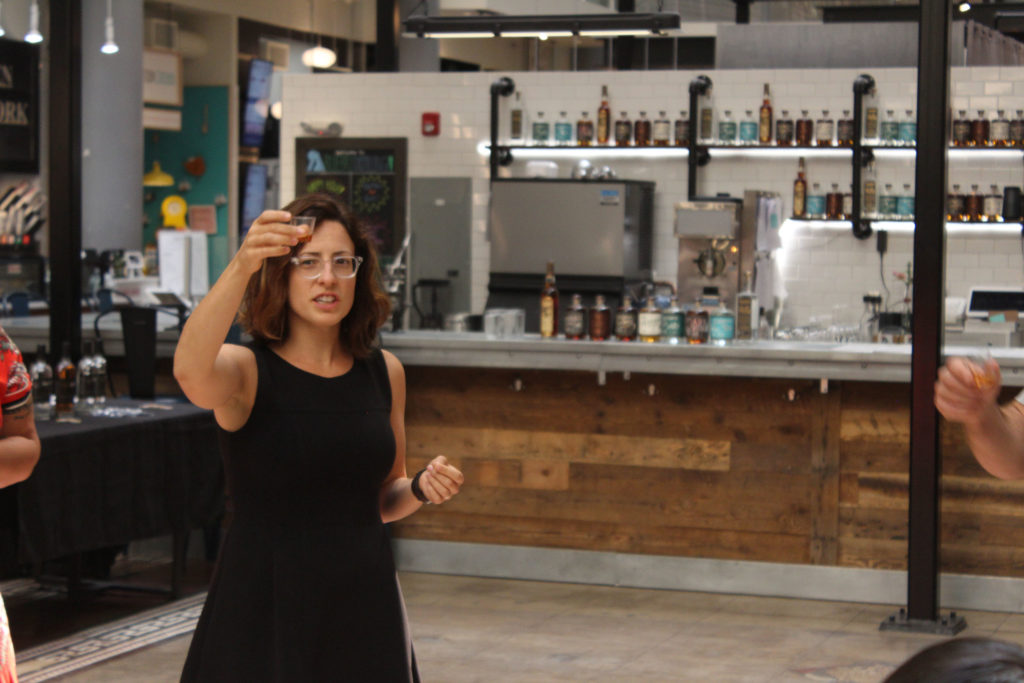
The number of spirit-themed visitors’ trails from coast to coast has risen rapidly, though few can claim to be as extensive as the Whiskey Rebellion Trail, which spans multiple major metropolitan areas across three states and the District of Columbia.
The trail, which includes 75 craft distilleries and cultural institutions, celebrates the earliest days of American whiskey when the country was young and the Mid-Atlantic was the epicenter of rye whiskey distilling activity. It officially launched last month with a kickoff event in Pittsburgh and wrapped up in Philadelphia.
Western Pennsylvania was the scene of the infamous Whiskey Rebellion in the late eighteenth century, the response to the new American government’s tax on distilleries. The American Revolution left the fledgling nation in debt and Alexander Hamilton proposed a tax on distilleries—the first excise tax in U.S. history. Distillers didn’t take too kindly to the tax and were known to tar and feather tax collectors when they came to claim their due. It culminated in a brief “rebellion” in Western Pennsylvania in the 1790s, which was quickly put down by President George Washington (who ultimately became a distiller himself after he finished his second term and retired to Mount Vernon).
“Part one of American whiskey was a Pennsylvania and Maryland story and we wanted to reclaim that,” says Meredith Meyer Grelli, founder and chair of the Whiskey Rebellion Trail and owner of Pittsburgh’s Wigle Whiskey. “We’re also one of the most prolific craft-producing regions in the country and we knew that we could create a really unique trail that’s cross-regional and that really didn’t exist before.”
Initial plans for the trail began about three years ago, Grelli says, but the project really accelerated in the past nine or 10 months.
The Trail’s advisory board includes more than a dozen tourism and economic development agencies, the Commonwealth of Pennsylvania and craft distilleries across the Mid-Atlantic region. The curated itinerary across the multi-day Master Trail encompasses the greater Pittsburgh, Baltimore, Washington, D.C. and Philadelphia regions. Weekender and one-day passes are also available for each region. Passes range in price from free to $165 for an annual membership. Pass holders gain access to museums, including the Senator John Heinz History Center in Pittsburgh, George Washington’s Mount Vernon (site of the restored George Washington Distillery) and Philadelphia’s Museum of the American Revolution. The passes also cover cocktails, tasting flights and tours at the 70 participating distilleries.
The final day of the four-day kickoff event began with a mini spirits festival of sorts at The Bourse Market Philadelphia, a sprawling food hall in the historic Bourse building in Philadelphia’s Old City.
“It’s amazing to see how fast [the trail] came together,” says Arthur Etchells, Philadelphia manager of Manatawny Still Works, a key southeastern Pennsylvania component of the trail and one of the distilleries pouring at the launch event. “It’s a great way to trumpet out what we’ve all been doing. We have great, award-winning spirits of all kinds in this region and [the trail] really provides a way to frame them around local tourism.”
It’s no secret that the Whiskey Rebellion Trail draws inspiration from another prominent spirits tourism partnership. “You can’t ignore the fact that the Kentucky Bourbon Trail is quite the economic driver and we’re looking for the same opportunity for people who travel for whiskey,” says Laura Burkhardt of Visit Philly, which represents the four counties in southeastern Pennsylvania that are involved in the trail.
And although the impetus for the Whiskey Rebellion Trail is rooted in history, it’s also about celebrating today’s rebels.
“The rebellious spirit really is the craft spirit,” Grelli says. “It means whiskey, it means gin, it means rum, it means amari—it’s all these sorts of spirits.”


